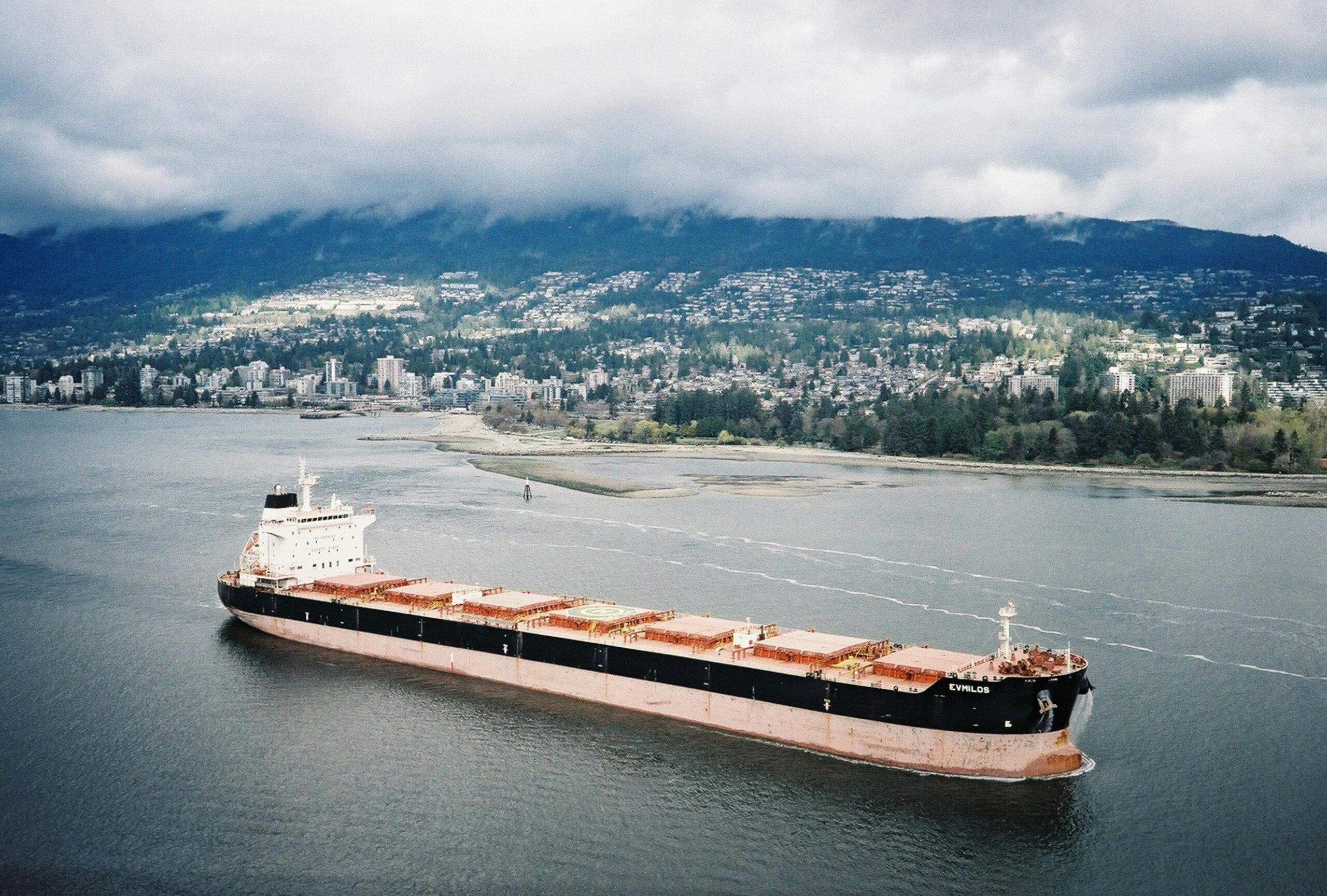Known affectionately as Hollywood North, Vancouver has cemented its reputation as a global powerhouse for film and television production. Its breathtaking landscapes, generous tax incentives, and world-class talent pool make it an irresistible destination for blockbuster movies and hit TV series. But beyond the glitz and glamour lies a significant opportunity: a robust framework for international talent to work in and immigrate to Canada. This article explores the profound connection between Vancouver’s thriving entertainment sector and the Canadian immigration pathways available to the creative professionals who bring these productions to life.
Table of Contents
- The Irresistible Allure of Hollywood North: Why Vancouver Dominates Film Production
- A Spotlight on Immigration: Essential Pathways for Film Industry Professionals
- From Set to Settlement: Permanent Residency Options for Creative Professionals
- Key Filming Hotspots and Their Immigration Significance
- Frequently Asked Questions
The Irresistible Allure of Hollywood North: Why Vancouver Dominates Film Production
Vancouver’s ascension to the status of Hollywood North is no accident; it is the result of a powerful combination of strategic advantages that make it a premier choice for international productions. The city’s staggering scenic diversity is a primary draw. Within a short distance, film crews can capture the gritty, historic aesthetic of Gastown, the lush, sprawling nature of Stanley Park, and the distinguished, collegiate architecture of the University of British Columbia (UBC). This versatility allows Vancouver to stand in for numerous global locations, from futuristic cities to small American towns, as seen in wildly popular productions like Riverdale and The X-Files. This chameleon-like ability drastically reduces logistical complexities and production costs, making it a pragmatic choice for studios.
Furthermore, the government of British Columbia offers highly competitive tax credits, creating a compelling financial incentive that attracts major studios and independent filmmakers alike. This economic advantage, coupled with a deep and highly skilled local labour pool—encompassing everything from seasoned camera operators and set designers to world-class visual effects artists—ensures that productions are executed at the highest standard. The success of blockbuster films like Ryan Reynolds’ Deadpool and long-running series such as Supernatural serves as a powerful testament to the region’s capabilities. This sustained influx of high-profile projects creates a perpetual demand for both local and international talent, establishing a vibrant ecosystem where creative careers can flourish and, importantly, where doors to Canadian immigration are consistently opened for specialized foreign workers.
A Spotlight on Immigration: Essential Pathways for Film Industry Professionals
The dynamic nature of the Vancouver film industry necessitates a flexible and responsive immigration system to attract top-tier international talent. For many actors, directors, and key creative personnel, the pathway to working in Canada involves obtaining a work permit. While the standard process often requires a Labour Market Impact Assessment (LMIA) to demonstrate that no Canadian worker is available for the job, the entertainment industry frequently benefits from specific exemptions. A crucial exemption falls under the ‘significant benefit to Canada’ (C10) provision. This allows high-profile actors or key production staff, whose presence is deemed vital to the success of a project, to obtain a work permit without an LMIA. The argument is that their participation brings substantial economic, cultural, and employment benefits to Canada by ensuring the production moves forward, employing hundreds of Canadians in the process.
Additionally, international agreements like the Canada-United States-Mexico Agreement (CUSMA) provide streamlined work permit options for certain American and Mexican professionals. It is also essential to recognize the role of major industry unions, such as UBCP/ACTRA (for performers) and IATSE (for technicians and crew). These organizations often play a pivotal role in the hiring process, and their collective agreements can influence the conditions under which foreign workers are engaged. Navigating these regulations requires a clear understanding of both immigration law and industry-specific practices. Whether a role requires an LMIA or qualifies for an exemption depends heavily on the individual’s unique skills, their role in the production, and the overall economic impact of the project on British Columbia and Canada.
From Set to Settlement: Permanent Residency Options for Creative Professionals
For many international professionals who fall in love with Vancouver’s vibrant culture and stunning scenery, a temporary work permit is just the first step. The ultimate goal is often permanent residency, and Canada offers distinct pathways tailored to the unique profiles of those in the arts and culture sector. The most notable of these is the Self-Employed Persons Program. This federal program is specifically designed for individuals who have relevant experience in cultural activities or athletics and have the intention and ability to be self-employed in Canada. Applicants are assessed on a points-based system that considers their experience, education, age, language abilities, and adaptability. To be eligible, a film director, an actor, a set designer, or a visual effects artist must demonstrate at least two years of significant, full-time experience in their field within the last five years and show that they can make a ‘significant contribution’ to Canada’s cultural life.
Beyond this specialized program, experience gained while working in the Vancouver film industry can be a powerful asset for other immigration streams. For instance, skilled work experience obtained in Canada on a valid work permit can significantly increase a candidate’s Comprehensive Ranking System (CRS) score within the Express Entry system, which is Canada’s primary mechanism for managing skilled worker applications. Furthermore, the British Columbia Provincial Nominee Program (BC PNP) periodically invites skilled workers with experience in in-demand occupations to apply for a provincial nomination, which provides a substantial boost to an Express Entry profile. While the arts are not always a targeted sector, professionals with transferable skills in areas like management or technology within the film industry may find viable options through these streams, turning a temporary gig on a Vancouver film set into a long-term future in Canada.
Key Filming Hotspots and Their Immigration Significance
The iconic locations featured in countless productions are more than just cinematic backdrops; they represent hubs of economic activity and gateways for immigration. When a series like Riverdale transforms the historic streets of Gastown into its moody titular town, it generates a cascade of opportunities. Each day of filming requires an army of professionals, from lighting grips and sound engineers to costume designers and special effects coordinators. Many of these specialized roles are filled by foreign experts whose unique skills are essential to the project’s vision. Their work in Vancouver not only contributes directly to the local economy but also provides them with the Canadian work experience that is often a critical component of a future permanent residency application. Similarly, the cinematic sweep of Stanley Park and the classic architecture of UBC, featured in productions like The X-Files and To All the Boys I’ve Loved Before, underscore the continuous demand for world-class talent to work on location.
This constant cycle of production solidifies Vancouver’s reputation and ensures a steady need for a global talent pool. For prospective immigrants, this ecosystem provides a tangible and exciting industry in which to build a Canadian career. The success of these productions directly correlates with the opportunities available for immigration.
Key Takeaways on Hollywood North and Immigration
- Economic Engine for Immigration: The multi-billion dollar film industry in Vancouver creates a high-demand environment for skilled foreign workers, justifying programs and work permit exemptions that facilitate their entry into Canada.
- Diverse Professional Roles: Immigration opportunities extend far beyond on-screen actors. They encompass a vast array of behind-the-scenes professionals, including directors, producers, cinematographers, editors, and visual effects artists, whose expertise is crucial.
- Strategic Path to Permanent Residency: Gaining Canadian work experience on a film set in Hollywood North can be a strategic first move towards permanent residency through federal programs like Express Entry or the specialized Self-Employed Persons Program.
- A Global Talent Magnet: Vancouver’s status as a premier filming destination ensures it remains a global hub for creative talent, reinforcing a cycle of attracting top-tier professionals who enrich Canada’s cultural and economic landscape.
Frequently Asked Questions
What is “Hollywood North”?
“Hollywood North” is a nickname for Vancouver, British Columbia, recognizing its status as one of the largest and most important film and television production hubs in North America outside of Hollywood, California. The name reflects the city’s ability to attract major international productions due to its skilled crews, diverse filming locations, and attractive tax incentives.
What kind of immigration options are available for actors wanting to work in Vancouver?
Actors typically require a temporary work permit to work in Vancouver. They may qualify for an LMIA-exempt work permit under the “significant benefit” C10 category if their role is crucial to the production. For long-term settlement, actors with a history of self-employment and international acclaim may be eligible for permanent residency through the federal Self-Employed Persons Program.
How does working on a film in Vancouver help with permanent residency?
Gaining skilled work experience in Canada on a valid work permit can significantly improve a candidate’s chances for permanent residency. This experience adds valuable points to an Express Entry profile under the Comprehensive Ranking System (CRS). It also demonstrates adaptability and establishment in the Canadian labour market, which are favorable factors in several immigration programs.
Do all foreign film workers in Canada need an LMIA?
No, not all foreign film workers need a Labour Market Impact Assessment (LMIA). Many key creative and technical positions may qualify for an LMIA exemption, particularly if the individual’s presence provides a significant economic, social, or cultural benefit to Canada. Additionally, professionals from countries with agreements like CUSMA may have access to LMIA-exempt work permit categories.
What is the Self-Employed Persons Program for artists?
The Self-Employed Persons Program is a unique federal immigration pathway for individuals with at least two years of relevant experience in cultural activities or athletics. Applicants must demonstrate that they have the intention and ability to be self-employed in Canada and can make a significant contribution to its cultural life. It is a key option for established actors, directors, and other creative professionals seeking permanent residency.
Why is Vancouver so popular for filming movies and TV shows?
Vancouver is popular for filming due to a powerful combination of factors. These include its diverse geography that can mimic many worldwide locations, generous government tax credits that reduce production costs, and a large, experienced, and highly skilled local crew base and talent pool.
Talk to us to find out more. ->
The content above is not intended to provide legal advice or opinions of any kind and may not be used for professional or commercial purposes.







